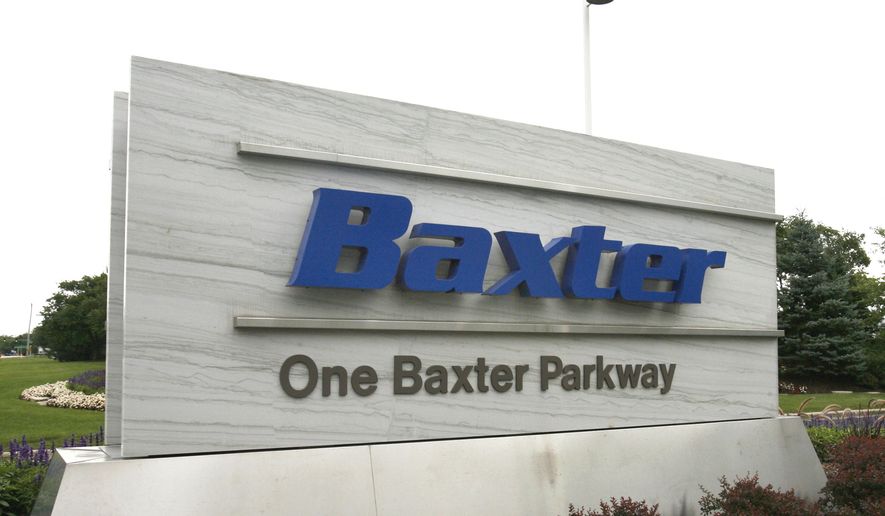Federal authorities are working to offset a growing shortage of medical saline bags in the U.S. from a Puerto Rican production facility that was damaged when Hurricane Maria hit the island last month.
The Federal Drug Authority had already raised the red flag about potential drug shortages in the U.S. due to damaged production plants for almost 50 pharmaceutical companies that have facilities on the island.
Production plants have been running on generator power since the hurricane wiped out the power grid, but both U.S. and Puerto Rican officials said that facilities being hooked up to the slowly recovering power grid are a high priority behind hospitals and other critical infrastructure.
On Friday, the FDA announced an update that it was working with the Baxter pharmaceutical company to “prevent a significant shortfall of production of Baxter’s sodium chloride 0.9% injection bags from its Puerto Rico facility.”
Sodium chloride injection bags, also known as “mini bags,” are widely used with a majority if not all patients who require intravenous fluids, as the liquids are often injected with the saline mix.
FDA Commissioner Dr. Scott Gottlieb had earlier said the agency is concerned about 40 critical medications that could be in short supply if production on the island isn’t resumed quickly, although he didn’t identify which medications or medical devices are at risk of shortages.
SEE ALSO: Puerto Ricans in need of basic materials, medications, says volunteer doctor
Puerto Rican pharmaceutical manufacturing plants produce a range of drugs that are used everyday in hospital settings or by prescription. These include medicine for diabetes, heart conditions, autoimmune disorders like rheumatoid arthritis and some HIV drugs. In addition, medical devices produced on the island include spinal cord stimulators, an electronic solution to alleviate chronic pain in lieu of opioids.
There has been a shortage of Baxter saline injection bags since 2014, according to the FDA, with physicians instead using “ringers,” a different intravenous fluid that has electrolytes to make up for the shortfall.
The FDA said in its statement that it’s working with Baxter to find solutions to prevent additional shortages in the U.S. This included importing products from the firm’s facilities in Ireland and Australia after several days of missed production at the Puerto Rico site.
They’re also coordinating logistical support to move critical products onto and off the island, the statement continued, and the FDA is expediting reviews and approvals of generic versions of products to alleviate the shortages.
• Laura Kelly can be reached at lkelly@washingtontimes.com.




Please read our comment policy before commenting.